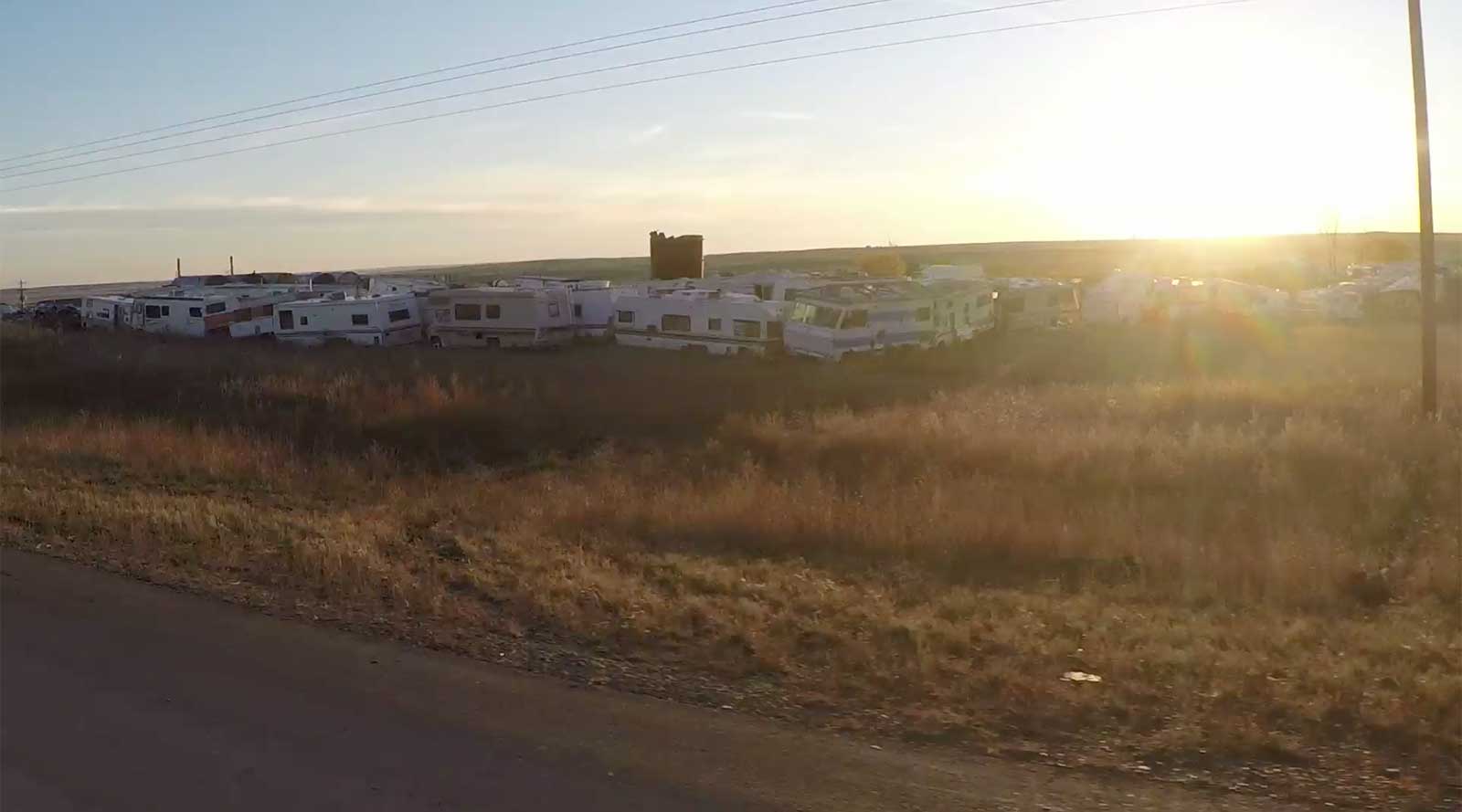|
America is the best example of a country with a job pool without any safety belt. The top 1% that own all the wealth has a hard time putting themselves in the shoes of the men at the bottom of the scale. Financing the economy and the crooked ways going with it enabled banks to prey on a segment of society with predatory practices, burdening the poor and tax payers with all the risks. Banks did not give risk a hand, they created it.

My film wants to put in the spotlight these men, victims of the system. In order to make it, some try at all costs to get there and have the guts to hope for a better world. They give it all up to find their salvation in Williston. The Gold Rush story repeats itself.
This film is at the heart of the global scene, of jobs crumbling, energy choices, a painful alternative in a world focusing solely on profits at the expense of the world’s future. A double adventure that intermingles men’s daily life with this hot topic.
An epic painting rooted in the reality of a world where Williston becomes the epicenter of an international crisis, in the midst of landscapes wounded by machines and the hand of man. It is a metaphor of the dead end where we find ourselves.
Williston is not only the town spared by recession. It is, no doubt, the only place in the world where demand exceeds offer. It also reflects another reality while economy is bad everywhere else. But, for how long?

This new found prosperity poses the problems of means, that is to say « fracking ». For or against « fracking »? This problem goes beyond the technology used in drilling. We find ourselves back to the wall and cannot get out of this dead end.
Practically all we consume is related to oil. Energy to produce, energy to transport, to grow: oil…oil…oil… Oil is a strategic stake, there’re no rules on how to get hold of it, including pretending to fight terrorists and invade producing countries such as Irak.
Fracking will gain ground everywhere there is shale gas or oil, and as long as we don’t come up with a credible alternative at the world level.
In the context of a global liberal economy, how can we condemn these men forced to come and be a part of the massacre of our planet in order to find jobs and survive?
This film takes us away from the cliches and we penetrate into rural America, a place we know little of. Sceneries of this inhospitable country bordering Canada unfold before our eyes. In wintertime everything seems motionless, buried under the snow with sudden freezing Artic wind gusts. Dull and colorless roads cross the horizon, disturbed here and there by dancing and lonely flares of a rig or the throbbing of a pump.
These tools used for the very last black gold rush are laid down smack in the middle of treeless plains, barren since the old weather beaten cowboys have mostly ceased farming.
 As a backdrop to the film, we clearly find an economic system trying to survive on its own at all costs, together with the market’s main players who look at the short term not caring about the planet. As a backdrop to the film, we clearly find an economic system trying to survive on its own at all costs, together with the market’s main players who look at the short term not caring about the planet.
The United States have forever been built on the premise that everything is possible, that’s how the « American Dream » came about. The myth evolved slowly into a system. We move where work is waiting for us. There is one crisis after another, losing employment and hope becomes the norm. It is a parade of humiliated men and crushed lives.
Hope created the oil boom in North Dakota, but it was hanging by a thread, namely the price of crude, and it crashed from one day to the next, shattering the last scraps of that dream.
Palmer, Dan, Craig, Bradley, Jerry, Jeff and Constance, will they be collateral victims of the political and economic market? Will they be ruthlessly sacrificed on the globalization and profit altar while they are trying to give their lives new meanings?

« Black Gold, a new American Dream » stages characters who are confronted with an overwhelming world, but they are condemned to go forward if they do not want to perish. This world no doubt sees short term the planet resources as unlimited, no matter what price is for ecology, as long as they keep the engine running to capacity.
|